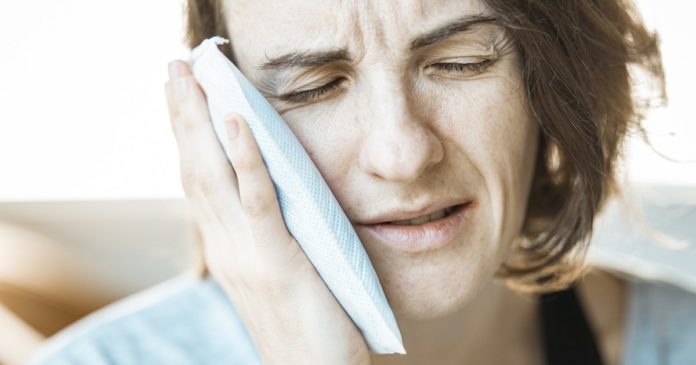A randomized trial has provided the first clinical evidence that the non-intoxicating cannabinoid CBD can be an effective and safe analgesic for dental pain.
Dental patients who cannot have Nonsteroidal Anti-Inflammatory drugs (NSAIDs) or acetaminophen due to underlying medical conditions or allergies have little alternative other than opioid prescription drugs to achieve pain relief – and these have their own risks.
“The rise in opioid-related addiction and death has everyone looking for better alternatives, things that can alleviate serious pain without hurting so many patients,” said Vanessa Chrepa, an associate professor at the Rutgers School of Dental Medicine. “We studied cannabidiol or CBD because previous research from other specialties suggested that it might relieve dental pain without any psychoactive effects, which is really what everyone wants to find.”
Ms. Chrepa and researchers from the University of Texas assessed the effectiveness and safety of cannabidiol as an analgesic for patients with emergency acute dental pain. The study involved 61 patients experiencing moderate to severe toothache being randomized into 3 groups. One group was administered CBD10 (CBD 10 mg/kg), another CBD20 (CBD 20 mg/kg), and the other a placebo. The groups were then monitored for three hours.
Both CBD groups reported significant Visual Analog Scale (VAS) pain reduction scores compared to their baseline and the placebo group. There was a maximum median VAS pain reduction of 73% from baseline pain at the three hour point.
The researchers noted the CBD20 group experienced a faster onset of significant pain relief than CBD10 – 15 minutes versus 30 minutes after administration.
Intragroup comparisons also showed a significant increase in bite forces in both CBD groups, but not in the placebo group; with the CBD20 showing a “significant differences”.
In terms of adverse effects, sedation, diarrhea, and abdominal pain were significantly associated with the CBD groups; but there were no other significant psychoactive or mood change effects.
“This novel study can catalyze the use of CBD as an alternative analgesic to opioids for acute inflammatory pain conditions, which could ultimately help to address the opioid epidemic,” states the study, which was published in the Journal of Dental Research early this month.
Limitations involved with the trial included the inability to explore age- and sex-related differences and various factors known to affect pain perception. These will be considered in the development of a larger-scale phase III clinical trial.


